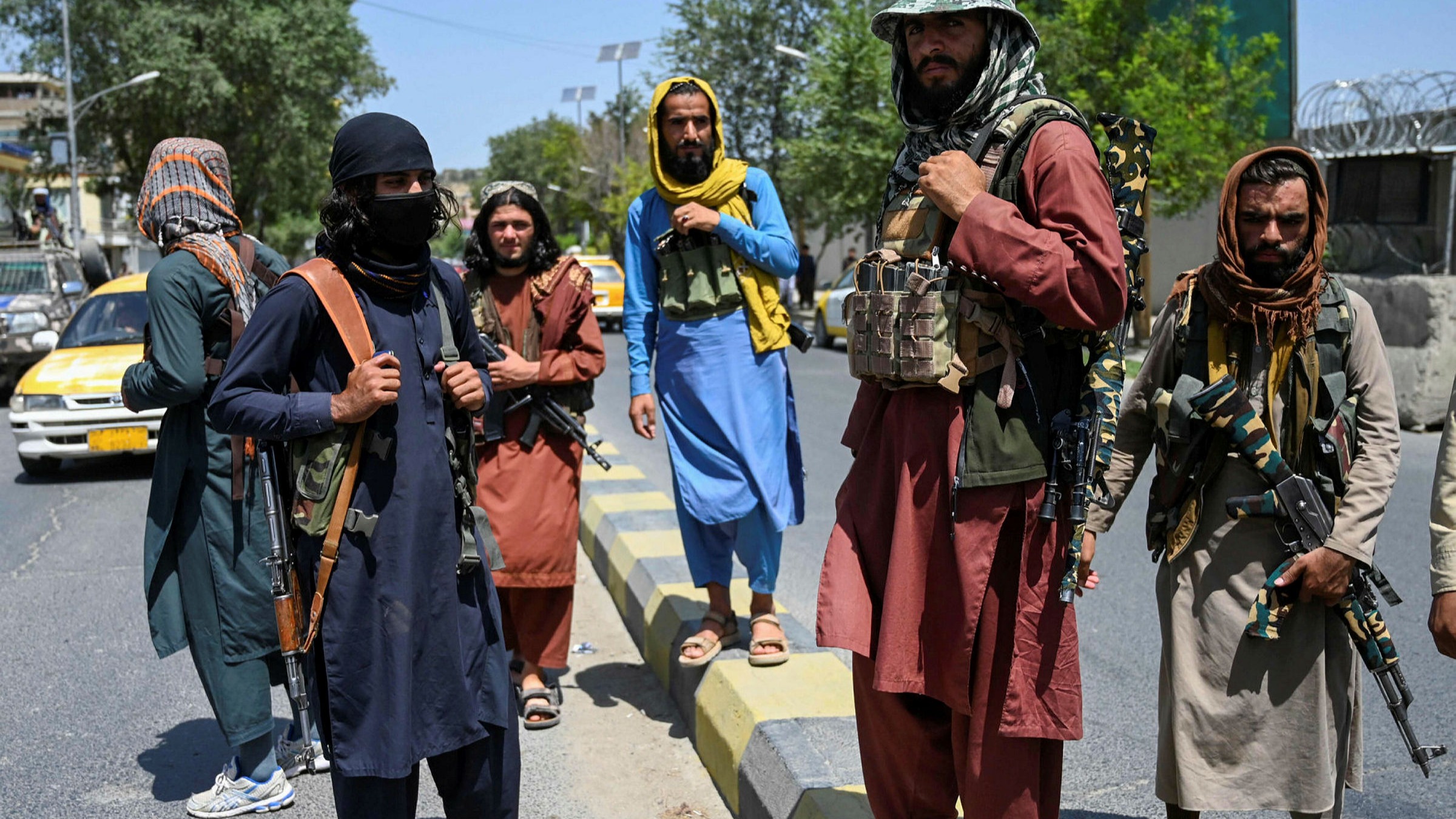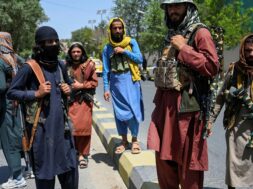
India Acknowledges Taliban in “Positions of Power and Authority” in Afghanistan
Manas Dasgupta
NEW DELHI, Sept 13: Even as thousands of Afghans are still reported to be waiting at land border crossings with other countries to escape from the “oppressive rule” of the Taliban, India for the first time has officially acknowledged that the militant group now holds “positions of power and authority across Afghanistan.”
In its first clear and official reference to the Taliban as a state actor, India acknowledged in a joint statement with Australia Sunday that the group holds “positions of power and authority across Afghanistan”.
This reference is a step forward for the diplomatic establishment, but falls short of officially recognising the Taliban administration as the government of Afghanistan. Official sources said Sunday’s formulation was arrived at after “much debate and deliberation” over the last week after the Taliban announced its Cabinet.
On Saturday, External Affairs Minister S Jaishankar had described the Taliban as the “dispensation” in Kabul during his remarks after the 2+2 talks with Australia involving Foreign and Defence ministers.
Sunday’s joint statement said: “(The) Ministers also expressed deep concern about the situation in Afghanistan. Ministers called for the Taliban to guarantee safe passage for foreign nationals and Afghans wanting to leave the country.”
It said: “They reiterated calls on those in positions of power and authority across Afghanistan to adhere to counterterrorism commitments and human rights, in accordance with UNSCR 2593.”
The UN Security Council Resolution 2593 — issued on August 30 under India’s month-long presidency — emphasised that Afghanistan must not allow its soil to be used for terrorism-linked activities.
In another unusual move by India, the joint statement outlined reports of violations of human rights. “They (the Ministers) noted reports of a rapid roll-back on women and girls’ rights and access to services and public spaces, as well as targeted violence against women’s rights defenders. In this regard, the Ministers reiterated their call for protection of rights of women and children and their full participation in public life,” it said.
The statement sought “a broad-based and inclusive government” for “long term peace and stability in Afghanistan.” Flagging concerns on terrorism, it said both sides “agreed to remain alert to the broader repercussions of the developments in Afghanistan for the ongoing terrorist threats around the world, and in our region”.
Apart from Jaishankar and Australian Foreign Minister Marise Payne, the 2+2 talks involved Defence Minister Rajnath Singh and his counterpart Peter Dutton.
Reports from the Afghanistan international borders said thousands of Afghans had gathered at the country’s land borders with Pakistan, Iran, Uzbekistan and Tajikistan trying to flee the Taliban-dominated land. Satellite images showed thousands stranded at Afghanistan’s border with Pakistan just last week, desperately trying to leave.
The images focus on the ground situation at the Chaman border in Spin Boldak between Afghanistan and Pakistan, and clearly indicate a desperate rush to leave the country. Apart from Spin Boldak, Afghanistan’s key border crossings are Shir Khan on the border with Tajikistan, Islam Qala on the border with Iran and Torkham on the border with Pakistan.
The Chaman border at Spin Boldak features one of the busiest crossings between Afghanistan and Pakistan. Traffic from Afghanistan has spiked over the past few weeks as families with bags, belongings and children, who have abandoned their homes in Kabul and other cities, wait at makeshift camps for their turn to cross over.
Afghans have been leaving the country by the droves since the Taliban’s takeover last month. Though the hardline group has claimed more moderate policies this time, compared to their brutal regime 20 years ago, their claims on protecting women’s rights have proved to be vastly different from ground realities.
The resumption of activities at the Kabul international airport on Monday since the Taliban takeover of the country a month ago, has reignited hopes among still stranded Afghans desperate to leave the country. An international commercial flight left Kabul on Monday, the first since the Taliban retook power last month.
The Afghan capital’s airport was left trashed after US-led forces finished a chaotic evacuation of more than 120,000 people, and the Taliban have since scrambled to get it operational with technical assistance from Qatar and other nations. On Monday morning, a Pakistan International Airlines jet touched down in Kabul, before making a return flight to Islamabad.
Around 70 people were on the flight to the Pakistani capital, mostly Afghans who were relatives of staffers with international organisations such as the World Bank, according to airport ground staff. “I am being evacuated. My final destination is Tajikistan,” said a 35-year-old World Bank evacuee. “I will come back here only if the situation allows women to work and move freely.”
A 22-year-old university student said he was taking a one-month trip to Pakistan. “It’s like a vacation. I am sad and happy. Sad about the country, but happy to leave for some time,” he said.
The resumption of commercial flights will be a key test for the hardline Islamist group, who have repeatedly promised to allow Afghans with the right documents to leave the country freely. As passengers prepared to board, airport staff went about their duties, although working under the new regime is marred by fear and confusion for women. “I don’t know if we will be killed or not for working here,” one of two women handling the security scanning machines said.
Many NATO nations admitted that they had run out of time to evacuate thousands of at-risk Afghans before the withdrawal deadline — agreed between the United States and the Taliban. Qatar Airways operated several charter flights out of Kabul last week, carrying mostly foreigners and Afghans who missed out on the evacuation.
On the inaugural run, there had been only a handful of people on the flight from Islamabad to Kabul. A PIA spokesman said at the weekend that the airline was keen to resume regular commercial services, but it was too soon to say how frequently flights between the two capitals would operate. An Afghan airline had resumed domestic services on September 3.
Passenger halls, air bridges and technical infrastructure were badly damaged in the days after the Taliban rolled into Kabul on August 15. Tens of thousands of Afghans fear reprisals for helping foreign powers during the 20-year US-led occupation, but the Taliban insist they have granted a general amnesty to everyone — including the security forces they fought against.













